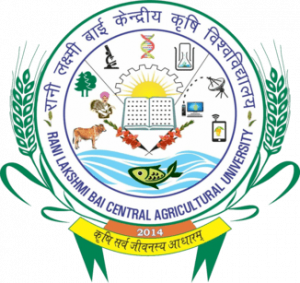Genetics & Plant Breeding

Genetics and plant breeding are pivotal disciplines in agriculture that focus on improving crop varieties to meet the demands of a growing global population and changing environmental conditions. Genetics involves the study of genes, heredity, and genetic variation in plants. By understanding the genetic makeup of plants, scientists can identify and manipulate specific genes responsible for traits such as disease resistance, drought tolerance, and yield. This knowledge forms the foundation for plant breeding, which applies genetic principles to develop new plant varieties with desired characteristics. Plant breeders use various techniques, including traditional cross-breeding, genetic modification, and marker-assisted selection, to create crops that can better withstand environmental stresses and improve agricultural productivity.
In addition to enhancing crop performance, plant genetics and breeding play a crucial role in advancing sustainable agriculture. By developing varieties that are more efficient in nutrient use, pest-resistant, and resilient to climate change, breeders contribute to more sustainable farming practices that reduce the need for chemical inputs and minimize environmental impact. Innovations in genomics and biotechnology further accelerate this process, enabling more precise and rapid development of improved varieties. As global challenges such as food security and climate change intensify, the integration of genetics and plant breeding will be essential for developing crops that can adapt to new conditions and support sustainable agricultural systems.
Page recently updated on September 4th, 2024 at 10:06 am



 About RLBCAU Information About RLBCAU
About RLBCAU Information About RLBCAU History History of RLBCAU
History History of RLBCAU Vision & Mission
Vision & Mission Jhansi About the City of Jhansi
Jhansi About the City of Jhansi From VC’s Desk
From VC’s Desk  Objective Objective of RLBCAU
Objective Objective of RLBCAU How To Reach How To Reach RLBCAU
How To Reach How To Reach RLBCAU University Act RLBCAU University Act
University Act RLBCAU University Act Regulations Regulations in RLBCAU
Regulations Regulations in RLBCAU Practical Manual (UG) Practical Manual (UG)
Practical Manual (UG) Practical Manual (UG) List of Students List of Students in RLBCAU
List of Students List of Students in RLBCAU Board of Management
Board of Management  Admission ProcedureAdmission Procedure of RLBCAU
Admission ProcedureAdmission Procedure of RLBCAU Academic Programmes Academic Programmes in RLBCAU
Academic Programmes Academic Programmes in RLBCAU College of Agriculture About College of Agricultire in RLBCAU
College of Agriculture About College of Agricultire in RLBCAU College of Horticulture & Forestry About College of Horticulture and Forestry
College of Horticulture & Forestry About College of Horticulture and Forestry College of Fisheries About College of Fisheries in RLBCAU
College of Fisheries About College of Fisheries in RLBCAU Recent News Recent News from RLBCAU
Recent News Recent News from RLBCAU Notice & Circulars Notice & Circulars from RLBCAU
Notice & Circulars Notice & Circulars from RLBCAU Press & Media Press & Media from RLBCAU
Press & Media Press & Media from RLBCAU Tenders Tenders from RLBCAU
Tenders Tenders from RLBCAU Hostel Hostel in RLBCAU
Hostel Hostel in RLBCAU Guest House Guest House in RLBCAU
Guest House Guest House in RLBCAU Library Details of Library in RLBCAU
Library Details of Library in RLBCAU 2024 Photo Album View Photogallery for 2024
2024 Photo Album View Photogallery for 2024

